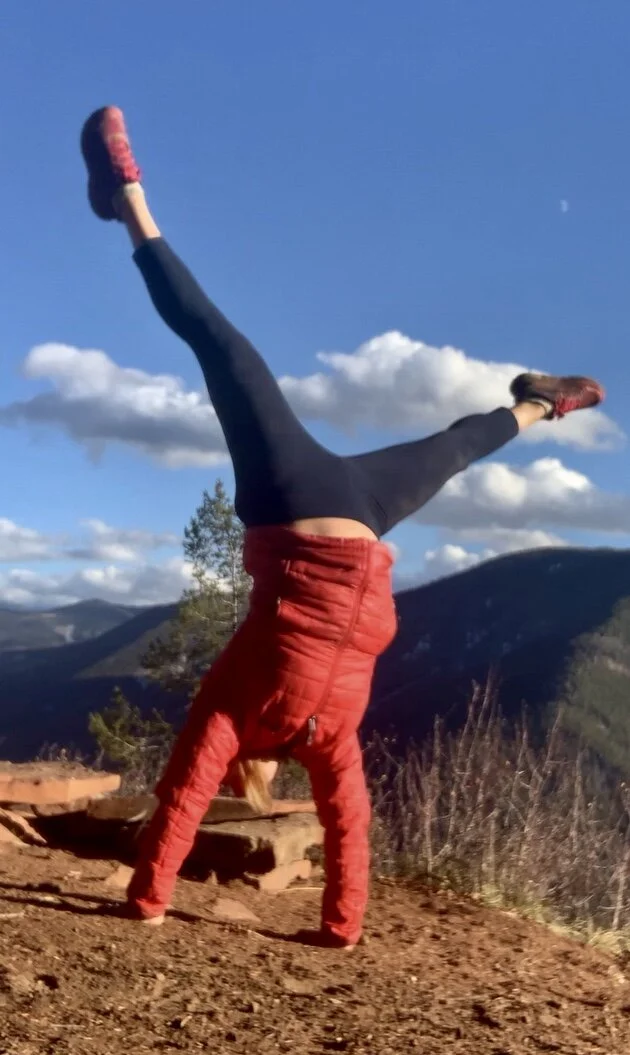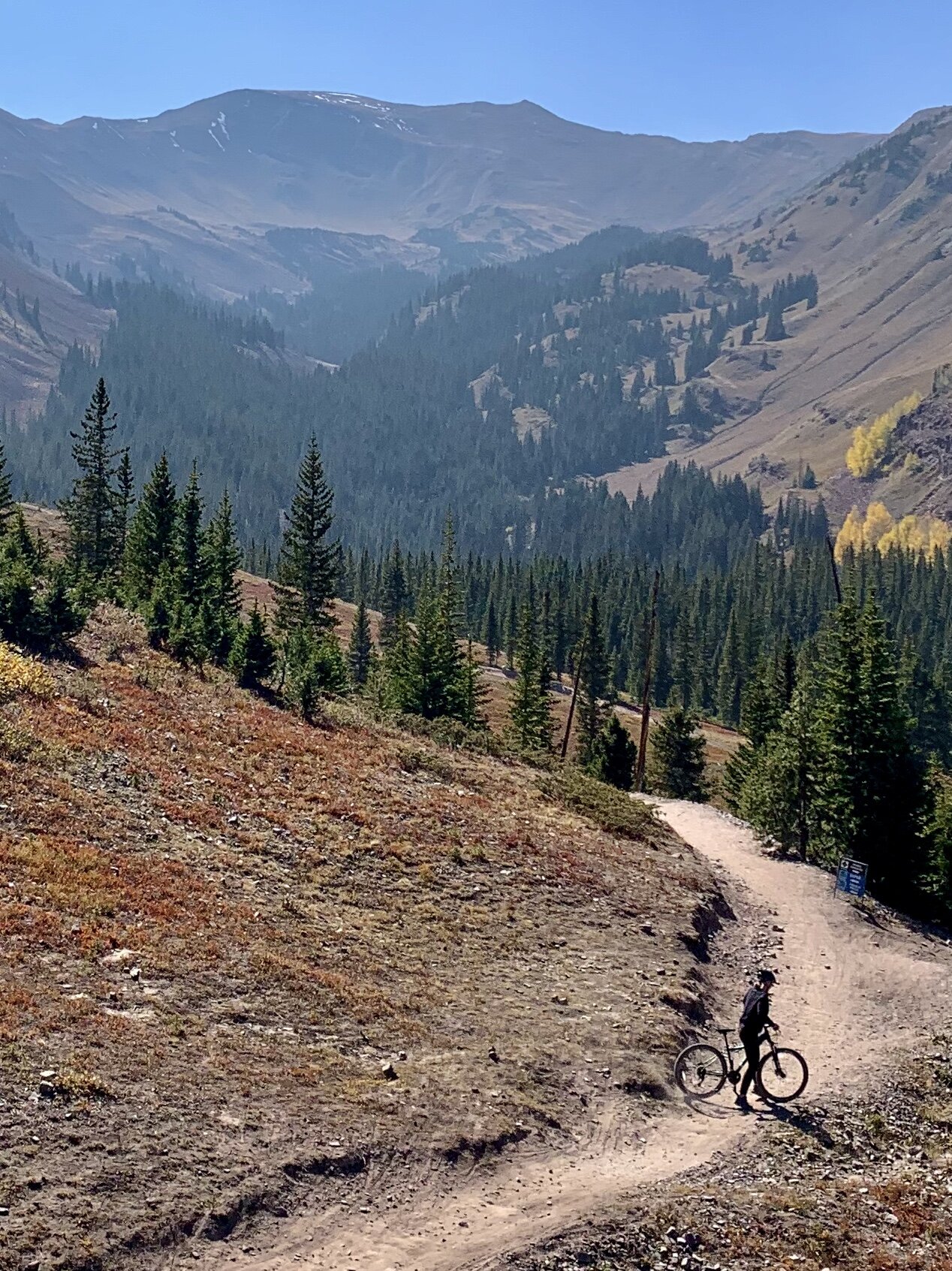Our Close Call with Covid
/“DOES MY LEFT EYE LOOK RED TO YOU?,” I ASK RYAN, pulling my lower lid down and turning from side to side.
He shrugs, clutching the thermometer in his fist and aiming it his forehead, then glances at the readout on the screen. “Ninety-seven point nine,” is all he says in response.
I wander into the bathroom to closely examine my eye, which looks like a bright red roadmap to nowhere good. “Oh god,” I gasp, and go to check my temp again. It’s still below 98, but now I might have pink eye, which is definitely a symptom.
SILVER LININGS: THE 14-DAY QUARANTINE GAVE MY FAMILY THE RARE GIFT OF UNINTERRUPTED QUALITY TIME TOGETHER.
It’s been like this for days now, the constant paranoia over the possibility that we have Covid-19. We’ve been going crazy ever since we found our son had been exposed to someone “who had been exposed to someone who had tested positive for Covid-19.”
“So, it’s like, a one-person-twice-removed type scenario?” I ask the lady from Pitkin County Health.
“That’s all the information we have so far. We will keep you posted.”
We would soon come to learn concrete information regarding this tricky little pandemic is as elusive as the possibility of your next Hawaiian vacation. Meanwhile, we receive an order for our son to remain in quarantine for the next 14 days. I have to remind myself this is routine and not some kind of punishment.
A day later, we got another call. “The person your son has been exposed to did in fact test positive for Covid-19.”
The next thing I know, Ryan is working from home and our dining room table has been converted to Maintenance Man Ground Control. The reverberation from his deep, booming voice can be felt throughout the house as he fields one phone call after another for hours on end. He is one of those guys who obviously missed his calling as an actor or performer and now has to make up for lost time by entertaining everyone, from the guy at Waste Management to the head of housekeeping. I have to go outside just to hear myself think.
We settle into our quarantine routine, taking our temperature 50 times a day and vetting our symptoms as they arise, gorging on so many throat lozenges, vitamin gummies, and zinc that I start to feel nauseated, which happens to be another symptom, and the only thing that makes me feel better is chugging a very strong beer. Suddenly we find ourselves drowning in pandemic vernacular, ugly words full of rough constantans that catch in your throat like “v” and “t,” terms like “contagious” and “infection” and “symptomatic.” Even Levi has picked up on it, asking us if we have “The Covid.”
We would soon come to learn concrete information regarding this tricky little pandemic is as elusive as the possibility of your next Hawaiian vacation.
Then Ryan starts getting sick, for real. I can tell just by looking at him. He has dark lines under his eyes, and his already deep voice goes into Darth Vader territory.
As if on cue, the phone rings. “Hi, this is Berta from Pitkin County Health.”
“Yes, Berta, I know it’s you,” I say. By now I’ve already got Berta’s number saved in my phone. She’s a contact tracer and her job is to keep us informed but also to keep tabs on us by checking in. I try to think about this as a community service instead of a creepy violation of my privacy.
“One of your son’s cohorts also tested positive for Covid-19, so we are extending your quarantine.”
I had been counting the days, the minutes really, from his exposure to this infected person. The more time that passed, the more I felt myself begin to relax. Instead of burning my tongue chugging immunity tea and getting heartburn from too much lemon echinacea ginger juice, I might actually be able to get some work done or go for a hike. My refrain to anyone who would listen had become, “If you’re sick, you probably don’t sit around wondering if you’re sick.”
Then there’s the voice in my head that goes, “What if you’re that healthy person who has no symptoms and then dies in their sleep from a stroke?”
Good times.
I should probably mention our 4-year-old son—the one who been exposed—was doing just fine. He learned how to ride a bike, and our days in quarantine became occupied with rides along the quieter sections of the Rio Grande Trail and lunch picnics by the river.
Meanwhile, Ryan develops a horrible cough, but is also very congested, which is not a typical symptom of Covid-19.
“It’s your sinus,” his mom insists. “You get this every fall. You need a hot toddy.”
The post-Labor Day/start of school year spike had overwhelmed our tiny hospital with test requests and we were told they were “backlogged.” Our quarantine was more than halfway over by the time we finally got tested.
The part of this experience that rattles me most (other than worrying about dying) is experiencing stress so intense, it actually made us sick. I think about the millions of people around the world who actually have Covid-19, the people who care for them, and the people who love them but can’t be by their side. I worry about how this collective stress, this stress on a global level, is affecting us. It’s almost as if our planet is screaming, “I can’t breathe!”
How do we release this stress when we can’t gather with friends, travel, go out partying, dancing, to see a movie, a concert or a play? How do we relax when we can’t leave the house without a mask? How do we seek comfort when we can’t hug each other, high five, or visit families and loved ones?
What about the kids who can’t go to school, and for their parents who have to juggle working from home and managing their kid’s remote learning? How do we recover? How long can this go on?
Let’s not be negative though: let’s be negative, negative, and negative.
Just like our test results.
With brilliant yellow Aspen leaves. crisp, cool air, and a warm hug,





















